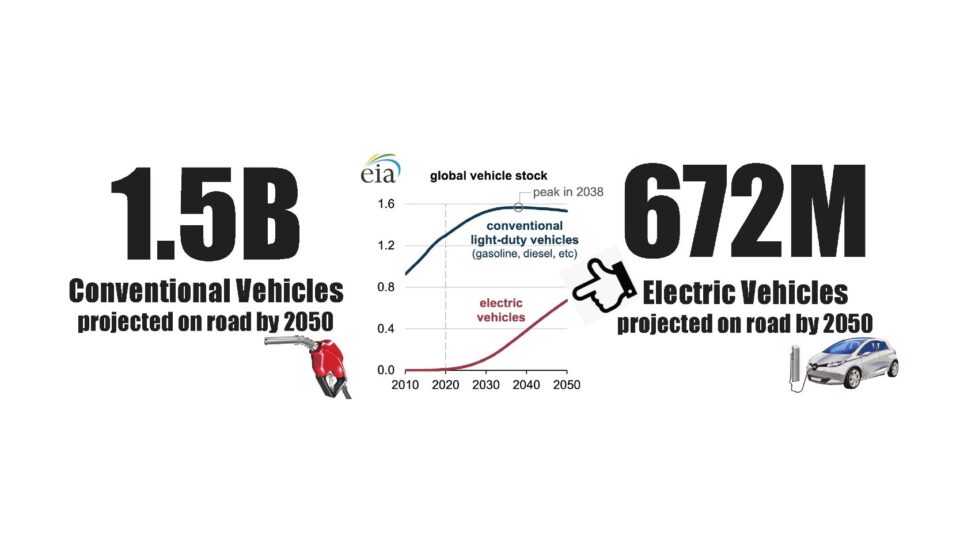Demise of Gasoline-Powered Vehicles Has Been Greatly Exaggerated

The chasm between electric vehicle hype and reality was never more profound than during last year’s Super Bowl.
You may recall seeing one electric vehicle commercial after another during the big game. The ads were slick. They were hip. And based on their frequency, one might guess the EV revolution just around the corner. Instead, headline after headline throughout 2023 confirmed an undeniable truth: The demise of internal combustion engine (ICE) vehicles has been greatly exaggerated.
Contrary to the prevailing narrative, new gasoline vehicle registrations continued to rise both in the United States and throughout the world last year. The world also used more gasoline than ever in 2023. And although the number of electric vehicles (EVs) in the United States has increased to about three million, that figure is dwarfed by the 265 million-plus conventional vehicles on American roads.
There are many reasons automakers are cutting back on plans to dramatically expand EV manufacturing and nearly 4,000 auto dealers penned a letter urging President Biden to “tap the brakes” on proposed emissions regulations that would mandate two-thirds of new vehicle sales be electric by 2032.
A December Consumer Reports analysis found EVs have nearly 80 percent more issues and are less reliable overall than their ICE counterparts. EVs are also generally more expensive, more costly to insure and tougher to repair than conventional vehicles.
No wonder a University of Chicago poll released last year found nearly half of Americans say they are unlikely to buy an EV any time soon. Just 19 percent of the respondents said it’s “very” or “extremely” likely they would buy an EV when they next go vehicle shopping. And another survey found 45 percent of Americans would be upset if gasoline-powered cars were phased out.
With more than a billion conventional passenger vehicles on the road worldwide and countless headwinds for widespread EV adoption – most notably lack of charging infrastructure and heavy reliance on China for battery materials and manufacturing – it’s time EV advocates stop pushing unpopular and impractical mandate proposals and accept reality: EVs and conventional vehicles can, and will, coexist for decades to come. And they can do so while both becoming more protective of the environment.
Contrary to popular belief, EVs are not “green” emissions-free climate panaceas – their emissions just happen to come from somewhere other than a tailpipe. The Wall Street Journal reported in 2021 that carbon dioxide emissions from a Tesla Model 3 are actually higher than a Toyota RAV4 for the first 20,000 miles the vehicles are driven. And as the New York Times recently reported, “Electric cars and renewable energy may not be as green as they appear. Production of raw materials like lithium, cobalt and nickel that are essential to these technologies are often ruinous to land, water, wildlife and people.”
Conventional cars obviously release carbon dioxide and other tailpipe emissions. But ICE vehicles have become far less polluting and more fuel efficient over the past 50-plus years.
U.S. Environmental Protection Agency data show that although the number of passenger vehicles on American roads has more than doubled and total miles driven has tripled since 1970, overall U.S. aggregate emissions of the six most common pollutants have declined 78 percent and CO2 emissions have declined nine percent during that time-span. The EPA also reports that new passenger vehicles are 98 to 99 percent cleaner for most tailpipe pollutants than they were in the 1960s.
To be clear, this emissions progress needs to continue trending in the right direction, and emission reduction innovation should be prioritized. But the notion that banning ICE vehicles and mandating EVs will eliminate all emissions is misleading.
These facts illustrate why the Alliance for Automotive Innovation – which represents companies responsible for more than 96 percent new vehicles sold in the United States – has commented that proposed tailpipe regulations that would effectively mandate EVs are “neither reasonable nor achievable in the time frame covered in this proposal.”
Average Americans count on their conventional passenger vehicles for reliable, affordable and essential transportation. So despite all the EV hype you’ll likely see again this Super Bowl Sunday, don’t be surprised if conventional vehicles still dominate American roads for years to come.
